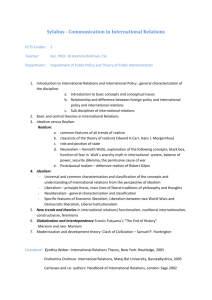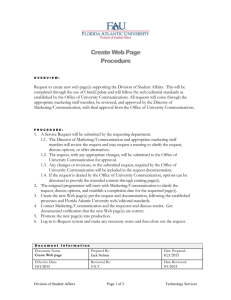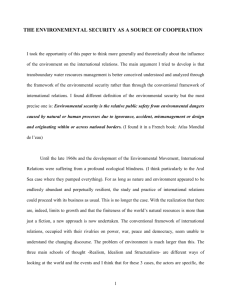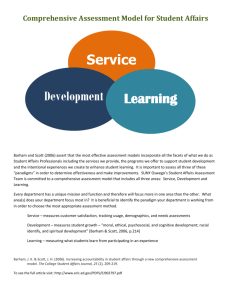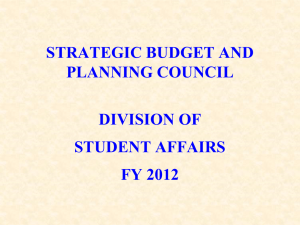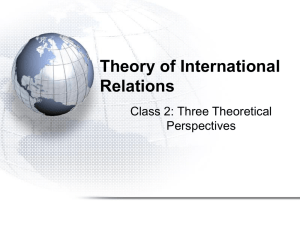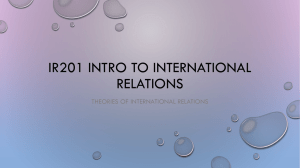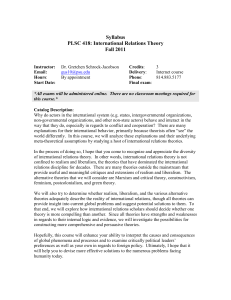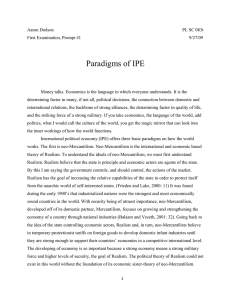Syllabus 2016
advertisement
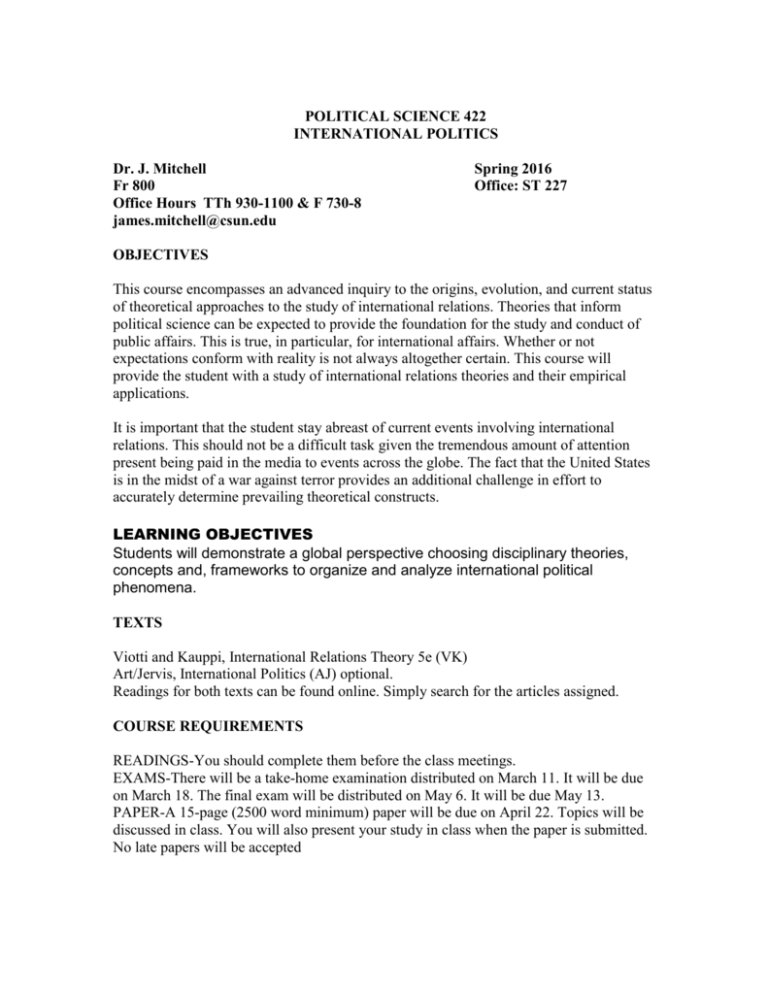
POLITICAL SCIENCE 422 INTERNATIONAL POLITICS Dr. J. Mitchell Fr 800 Office Hours TTh 930-1100 & F 730-8 james.mitchell@csun.edu Spring 2016 Office: ST 227 OBJECTIVES This course encompasses an advanced inquiry to the origins, evolution, and current status of theoretical approaches to the study of international relations. Theories that inform political science can be expected to provide the foundation for the study and conduct of public affairs. This is true, in particular, for international affairs. Whether or not expectations conform with reality is not always altogether certain. This course will provide the student with a study of international relations theories and their empirical applications. It is important that the student stay abreast of current events involving international relations. This should not be a difficult task given the tremendous amount of attention present being paid in the media to events across the globe. The fact that the United States is in the midst of a war against terror provides an additional challenge in effort to accurately determine prevailing theoretical constructs. LEARNING OBJECTIVES Students will demonstrate a global perspective choosing disciplinary theories, concepts and, frameworks to organize and analyze international political phenomena. TEXTS Viotti and Kauppi, International Relations Theory 5e (VK) Art/Jervis, International Politics (AJ) optional. Readings for both texts can be found online. Simply search for the articles assigned. COURSE REQUIREMENTS READINGS-You should complete them before the class meetings. EXAMS-There will be a take-home examination distributed on March 11. It will be due on March 18. The final exam will be distributed on May 6. It will be due May 13. PAPER-A 15-page (2500 word minimum) paper will be due on April 22. Topics will be discussed in class. You will also present your study in class when the paper is submitted. No late papers will be accepted GRADING-The grade will be based 25% on the mid-term and 35% on the paper and, 30% on the final 10% of your grade will be based on classroom participation which might include the occasional quiz. POLICIES I would prefer to keep the class as laissez-faire as possible. For example, there is no class attendance policy. There is a participation grade and one should probably attend class in order to earn a favorable participation assessment. Still, attendance is your choice. There are requirements which may or, may not, be deal breakers for you. 1) Cell phone activity is not allowed in class at all. Please make the cell phones disappear once class begins. They are not to reappear until class ends. 2) Students are required to be prepared to discuss a current event on a daily basis. Every student must be prepared with a current event daily and is liable to be called on to offer one involuntarily. 3) Cooperative conduct is expected including keeping chat with classmates during class to a minimum. ASSIGNMENTS Week 1 January 29 Introduction to the Study of International Relations Theory review any introductory text in IR with attention paid to theory, levels-of-analysis, and history. We will also examine the tenets of realism. Week 2 February 5 Realism Examined This week we further investigate the contours of realism and the conduct of international relations and statecraft. We will investigate the viability of realpolitik as a modality for strategic behavior and attendant criticism. VK, chs. 1 AJ, preface (particularly acknowledgements) & pp. 1-7 Week 3 February 12 Realism II VK, ch. 2 AJ, Part I Week 4 February 19 Liberalism: Interdependence and Global Governance focus here will be on the task of forging cooperative relationships among actors in a pluralist global environment. The assumption here is that there exists a complex conglomeration of participants in global affairs whose salience is inextricably bound up in the challenge of mitigating anarchy. VK, ch. 3 Week 5 February 26 Liberalism II AJ, pp. 76-132 Week 6 March 4 Economic Structuralism This section will investigate the belief that the world is not, of necessity comprised of atomized units absent a central identity or focus. This image views world affairs as part of a bigger picture, with the behavior of actors almost wholly contingent upon the larger systemic environment. VK, ch. 4 Week 7 March 11 Mid-Term Week Review and Exam Week 8 March 18 Force in Global Affairs As recent events have indicated, the utility of the use of force is still with us. Often that struggle is asymmetric and not among traditional actors. The nature and uses of force will be the focus. AJ Part II Week 9 March 20 International Political Economy International relations are comprised of political and economic activities, among others. We will look at the nature of IPE this week. AJ Part III Week 10 April 8 Issues in International Affairs This week we will look at world order issues, the type that, at least theoretically, ought to engage international actors collectively AJ Human Rights and Global Governance Week 11 April 15 The English School VK, chapter 5 Week 12 April 22 Constructivism I VK, chapter 6 Week 13 April 29 Critical Theory VK, chapter 7 Feminism VK, chapter 8 Week 14 May 6 Final Examination Normative Theory I VK, chapter 9 Exam distributed Due May 13



